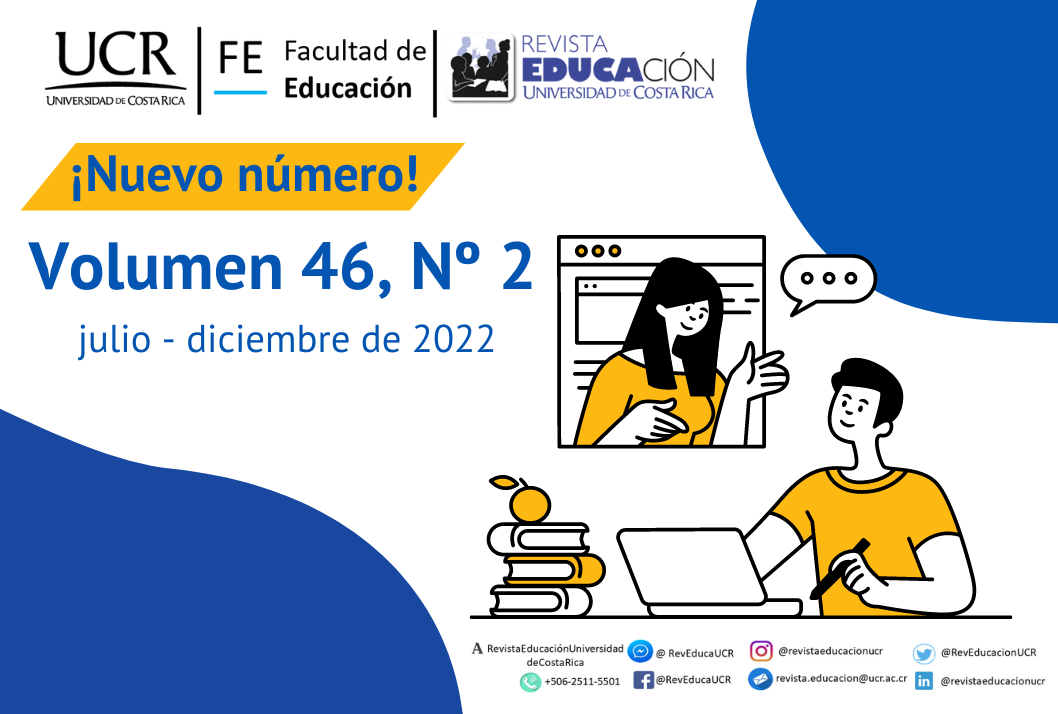Abstract
This article investigates the production and circulation of scientific knowledge on non-sexist education between 1970 and 2020 to account for the adopted meanings as a proposal for diagnosis and pedagogical intervention from categories, methods, and ethical positions -politicians. This article investigates the production and circulation of scientific knowledge on non-sexist education between 1970 and 2020 to account for the adopted meanings as a proposal for diagnosis and pedagogical intervention from categories, methods, and ethical positions -politicians. Methodologically, 203 empirical articles were selected through a systematic mapping study from the databases Scielo, Scopus, Web of Science, Taylor & Francis, Jstor, and ERIC. The articles were analyzed in terms of their general description (periodicity, trend of journals, and geographical distribution), the methodologies used, and the topics covered. Moreover, the results show a growing field of research with a focus on English-speaking countries. Likewise, the use of qualitative methodologies with an emphasis on higher education and an increasing interest in secondary education stands out. In conclusion, three hypotheses result from the present research: the evolution of the epistemological and methodological approach to non-sexist education, a research field that fails to institutionalize itself, and the social movements in favor of the portrayal of gender and sexuality in education.
References
Cómo citar
Martínez-Sierra, J., Yáñez-Urbina, C., Calquín-Donoso, C. y Araya, N. (2022). Mapeo sistemático de la investigación empírica en educación no-sexista entre los años 1970 y 2020. Revista Educación, 46(2). http://doi.org/10.15517/revedu.v46i2.47929
Referencias
Araya, S. (2004). Hacia una educación no sexista. Revista Electrónica Actualidades Investigativas en Educación, 4(2), 1-13. https://revistas.ucr.ac.cr/index.php/aie/article/view/9088/17486
Britzman, D. (2016). ¿Hay una pedagogía queer? O, no leas tan recto. Revista de Educación, (9), 13-34.
Butler, J. (2006). Deshacer el género. Paidós.
Calquín, C. (2020). “Queríamos Cambiar el Mundo, pero el Mundo nos Cambió a Nosotras”: Performatividad y Poder Regulador en Protocolos de Género Universitarios. Revista Latinoamericana de Educación Inclusiva, 14(2), 39-57. http://dx.doi.org/10.4067/s0718-73782020000200039
Calquín, C. y Gonzálvez, H. (eds.). (2018). Epistemologías feministas desde el sur: aportes, tensiones y perspectivas. RIL.
Esquer, M. y Fernández, K. (2020). La práctica docente en áreas STEM: mapeo sistemático de la literatura. Revista Educación, 45(1), 1-14. https://doi.org/10.15517/revedu.v45i1.42809
Flores, V. (2019). ¿Es la práctica pedagógica una práctica sexual? Umbrales de la imaginación teórica y erótica. Descentrada, 3(1), e068. https://doi.org/10.24215/25457284e068
Galaz, C. Troncoso, L. y Morrison, R. (2016). Miradas Críticas sobre la Intervención Educativa en Diversidad Sexual. Revista latinoamericana de educación inclusiva, 10(2), 93-111. https://doi.org/10.4067/S0718-73782016000200007
Goldberg, A. (Ed.). (2016). The SAGE Encyclopedia of LGBTQ Studies [La enciclopedia SAGE de estudios LGBTQ]. Sage.
Harding, S. (1986). Ciencia y feminismo. Morata.
Haraway, D. (1995). Ciencia, cyborgs y mujeres. La reinvención de la naturaleza. Cátedra.
Kitchenham, B. y Charters, S. (2007). Guidelines for Performing Systematic Literature Reviews in Software Engineering [Pautas para realizar revisiones sistemáticas de literatura en ingeniería de software] Keele University and Durham University Joint Report.
Kuhn, T. (2004). La estructura de las revoluciones científicas. Fondo de Cultura Económica.
Morgade, G. (coord.) (2016). Educación sexual integral con perspectiva de género: la lupa de la ESI en el aula. Homo Sapiens
Miguel, S. (2011). Revistas y producción científica de América Latina y el Caribe: su visibilidad en SciELO, RedALyC y SCOPUS. Revista Interamericana de Bibliotecología, 34(2), 187-199. http://www.scielo.org.co/pdf/rib/v34n2/v34n2a6.pdf
Navarro, C. y Ramírez, M. (2018). Mapeo sistemático de la literatura sobre evaluación docente (2013-2017). Educação e Pesquisa, 44, e185677. https://doi.org/10.1590/s1678-4634201844185677
Porta, L. (coord.) (2021). La expansión biográfica. Editorial de la Facultad de Filosofía y Letras.
Ramallo, F., Gómez, A. y Porta, l. (2018). Pedagogías queer y polifonías del sur: transgresiones y afecciones en la educación en el profesorado. Revista de Ciências Humanas, 52, e58548. http://hdl.handle.net/11336/91858
Rozemblum, C., Unzurrungaza, C., Banzato, G. y Pucacco, C. (2015). Calidad editorial y calidad científica en los parâmetros para inclusión de revistas científicas en bases de datos en Acceso Abierto y comerciales. Palabra Clave, 4(2), 64-80. http://www.scielo.org.ar/pdf/pacla/v4n2/v4n2a01.pdf
Sinoara, R., Antunes, J. y Olivera, S. (2017). Text mining and semantics: a systematic mapping study [Minería de texto y semántica: un estudio de mapeo sistemático]. Journal of the Brazilian Computer Society, 23(1), 1-20. https://doi.org/10.1186/s13173-017-0058-7
Zerán, F. (ed.). Mayo feminista. La rebelión contra el patriarcado. LOM.



